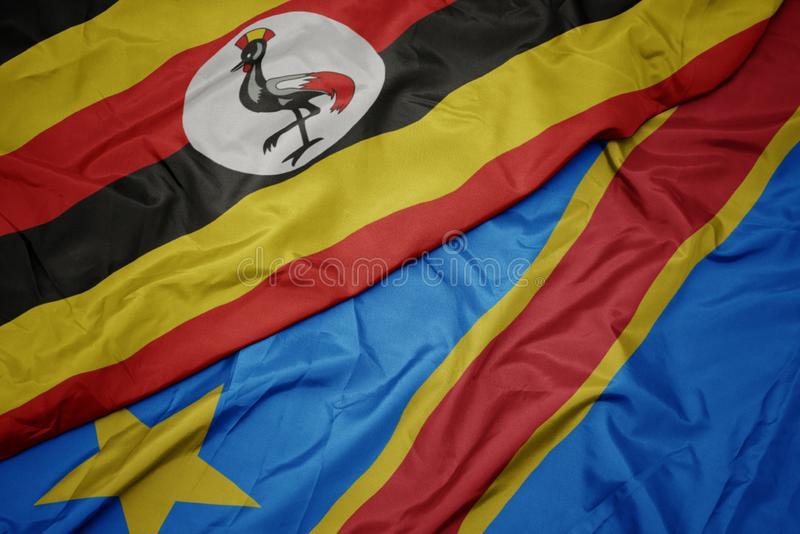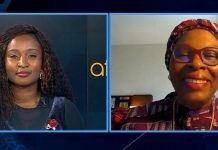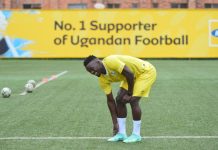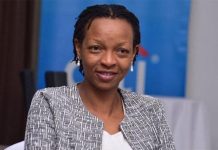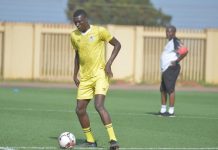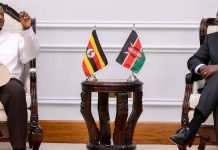Africa-Press – Uganda. By Faridah N Kulumba
On 1st September, the government of Uganda started payment of the USD325 million (about Shs 1.23 trillion) compensation to the Democratic Republic of Congo (DRC). Uganda is trying to beat the deadline set by the International Court of Justice (ICJ).
The payment
Uganda paid the first annual installment of USD65 million in reparation for the invasion and looting by Uganda People’s Defence Forces (UPDF) during the Congo war 20 years ago. The compensation is to be paid in five installments of USD65 million, starting on September 1st this year and every September 1st for the following years. The news was confirmed by Uganda’s Finance Ministry Spokesman, Apollo Munghinda.
The petition
In 1999, DR Congo petitioned the ICJ accusing Uganda’s armed forces of destroying properties, lives, and natural resources when it invaded the country in 1998. DR Congo had asked for a compensation of USD11bn but the judges dismissed several parts of the claim and decided on a far lower amount.
The Court judgment
In 2005, the International Court of Justice ruled that Uganda had violated international norms as an occupying force between 1998 and 2003. The judges found that Uganda was responsible for the deaths of 10,000-155,000 Congolese in the eastern Ituri region. Ugandan troops were also found guilty of looting gold, diamonds, and timber.
The final decision
In February this year, the United Nation’s highest court, ruled that Uganda should pay DR Cong USD225 million for loss of life, USD40 million for damage to property, and USD60 million for damage to natural resources. The ICJ ordered Uganda to compensate DRC USD325 million in five annual installments of USD65 million between 2022 and 2026, starting in September this year.
Uganda’s plea
Uganda had argued that the billion demanded by DR Congo would destroy its economy. The court said its order would be within the capacity of Uganda to pay. The ICJ judgment said that the reparation to DR Congo for damage to persons and property reflects the harm suffered by individuals and communities as a result of Uganda’s breach of its international obligations.
“Verdict not fair,” Uganda
The government of Uganda dismissed the ICJ verdict saying that it was not fair. Uganda’s Attorney General Kiryowa Kiwanuka said they were many troops from different countries involved in the DR Congo conflict, and questioned why Uganda’s UPDF was singled out. This conflict involved forces from nine African Countries, including Uganda, and Rwanda, which supported rebel groups in the mineral-rich east of the DRC.
The Uganda’s interference In Congo’s internal affairs
Uganda first went to DR Congo in 1996 to support rebel groups fighting against the government of former President of Congo Joseph Desire Mobutu Sese Seko claiming that Congolese armed groups allied to his government were a threat to Uganda’s security. After Mobutu was overthrown by his son Laurent Desire Kabira, the new president found himself in conflicts with his former allies, Uganda and Rwanda, whom he accused of supporting a planned coup. Kabira decided to expel all foreign forces including Uganda.
Falling apart
Uganda and Rwanda later fell apart when they invaded the country in support of a new rebel group, the Congolese Rally for Democracy (RCD), with Uganda supporting a breakaway rebel faction led by Felix Etienne Tshisekedi. By that time, the rebels were controlling the country’s second-largest city, Kisangani, where Rwanda and Uganda forces clashed twice.
Uganda back in DR Congo
At the end of last year, Uganda’s UPDF and DR Congo army launched a joint operation against the Allied Democratic Forces (ADF), an armed group allied with Islamic State. Hundred of Ugandan soldiers and dozens of armored vehicles were seen crossing the border at Nobili since the offensive started on November 30th.
Faridah N Kulumba, [9/15/2022 2:05 AM]
The joint forces conducted search operations in the forest of eastern Congo in an operation dubbed ‘Operation Shujaa.’
The vow
On 13 December 2021, the President of DR Congo Felix Tshisekedi announced that the Ugandan UPDF troop’s presence in his country was temporary. President Tshisekedi vowed to ensure that the presence of Ugandan troops in DRC, where they are fighting an Islamist militant group alongside Congolese forces, was strictly limited to the time strictly necessary for this operation.
In May this year, Uganda’s land forces commander Muhoozi Kainerugaba tweeted saying that Operation Shujaa was to officially cease in about 2 weeks according to the two nations’ original agreement, but until today UPDF is still there.
Change of schedule
In June, General Camille Bombele Lohola, the commander in charge of coordinating joint operations said they were given the mission to eradicate the ADF, but they have not yet managed to eradicate the enemy, and on that note, the joint operation is still on. Initially, Operation Shujaa was scheduled to last six months, which would have seen Uganda withdraw its troops in June 2022.
The ADF began as an uprising in Uganda but has been based in DR Congo since the late 1990s. It pledged allegiance to ISIL (ISIS) in mid-2019 and is accused of killing hundreds of villagers in frequent raids over the past years.
Warning
Uganda’s opposition Members of Parliament tasked the government of Uganda to explain the deployment of UPDF in Congo without the approval of Parliament. The opposition legislator warned the deployed forces against the same mistakes of looting natural resources and other mistakes which were made in the 1990s as it may taint the image of Uganda again.
For More News And Analysis About Uganda Follow Africa-Press

